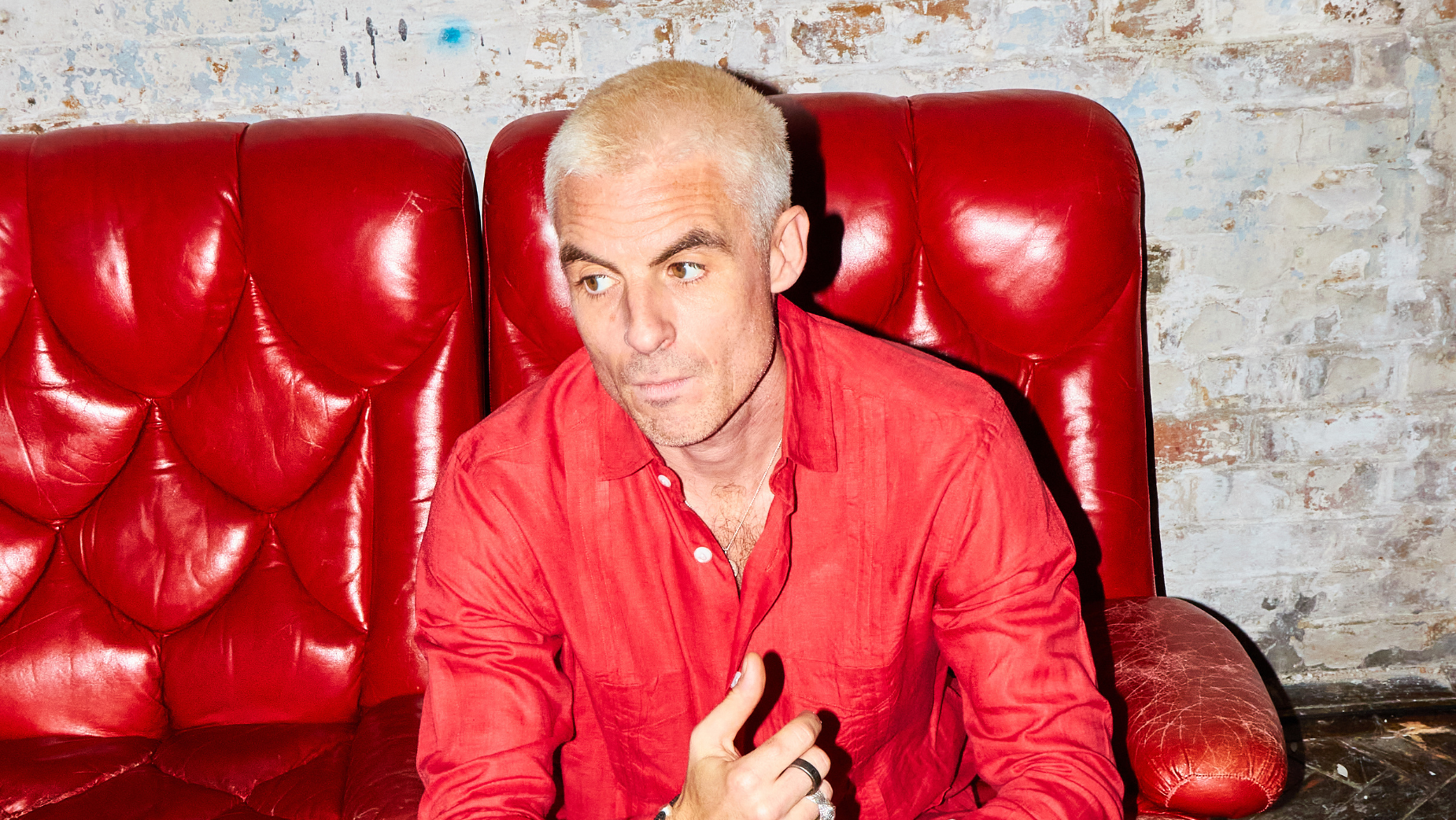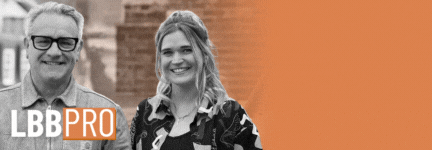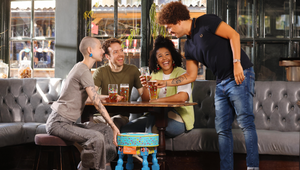
Bossing It: Keeping Your Game-Face on with Paul McEntee

Paul McEntee is the founder and CEO of Here Be Dragons, the earned creative communications agency that does work for Beavertown, Disney, Justice4Grenfell and a host of other consumer clients.
LBB> What was your first experience of leadership?
Paul> Making the decision to dump my girlfriend when she snogged another bloke in front of my mates when I was 16.
LBB> How did you figure out what kind of leader you wanted to be – or what kind of leader you didn’t want to be?
Paul> Your career shapes you before you go out alone to set up a business. I worked in some rigid uptight work structures that bled me and some free and creative ones that inspired me. I knew that I wanted to lead with my heart over my head. With passion you can bring people with you and figure out how to do shit as you go on the journey. I’m not a meticulous planner and I like the opportunity that organised chaos can bring, so energy and passion are my leadership tools.
LBB> What experience or moment gave you your biggest lesson in leadership?
Paul> All the bad stuff. Covid, losing clients, churning staff. A calm sea never made a good sailor.
LBB> Did you know you always wanted to take on a leadership role? If so how did you work towards it and if not, when did you start realising that you had it in you?
Paul> No, my agency happened by accident. I never planned to be a leader and never had a plan. But energy is contagious and you meet great people along the way then suddenly you fall into a leadership role and have to adapt on the hoof. Leadership takes many forms and you find the right fit for you and the things you are trying to build.
LBB> When it comes to 'leadership' as a skill, how much do you think is a natural part of personality, how much can be taught and learned?
Paul> I’d say it is 75% nature and 25% nurture. You’re not going to take the jump (in running a business) if you don’t believe you can lead a team, which is mostly instinct. But the 25% is soooo important also to hone and refine your skills from there, which are taught or learned from others.
LBB> What are the aspects of leadership that you find most personally challenging? And how do you work through them?
Paul> Keeping your game-face on when shit does not go your way. Resilience is a learned skill you have to perfect, for sure.
LBB> Have you ever felt like you've failed whilst in charge? How did you address the issue and what did you learn from it?
Paul> Yeah, I fail all the time. In my own expectations, those of others and also in actual business results. It’s so cliché, but the learnings you get from failures are what drives you, otherwise we live in a bubble.
LBB> In terms of leadership and openness, what’s your approach there? Do you think it’s important to be as transparent as possible in the service of being authentic? Or is there a value in being careful and considered?
Paul> It’s important for clients and employees to understand the journey. We’re in a results driven business and we live or die by those results. But when we don’t win, people forgive you easily if they are on the journey. In that sense, a level of openness demonstrates our human fallibility, which drives trust and likeability. So yeah, show some ankle every now and again.
LBB> As you developed your leadership skills did you have a mentor, if so who were/are they and what have you learned? And on the flip side, do you mentor any aspiring leaders and how do you approach that relationship?
Paul> I never had a mentor but I had a couple of great bosses before who were completely different characters and who moulded who I am. But as I progress in my career, I enjoy and want to mentor the next set beneath me because a value exchange happens.
LBB> In continually changing market circumstances, how do you cope with the responsibility of leading a team through difficult waters?
Paul> I think energy is the biggest leadership attribute and allows you to navigate your own personal compass. You can only have energy if you have self-care (looking after yourself mentally and physically) and feed your mind with positive stuff (inspiration). Then you can deal with whatever winds blow your way.
LBB> As a leader, what are some of the ways in which you’ve prioritised diversity and inclusion within your workforce?
Paul> Having values which actually mean something and make sense for your brand. Random words on walls are great but what do they actually mean and how are they ownable for your agency and your workforce? Most aren’t if you scratch beneath the surface. Having meaningful values will champion diversity and inclusion at the heart.
LBB> How important is your company culture to the success of your business? And how have you managed to keep it alive with increases in remote and hybrid working patterns?
Paul> It is everything. When stuff doesn’t go your way you need a sense of trust and understanding to keep everyone’s heads up. A calm sea never made a good sailor. So culture makes people stick together in tough times. We don’t always get it right so constantly have to make changes, so it evolves and changes, which is why you have to get your hiring process right so that new joiners are additive to that culture and help you move it forward, not suck it away.
LBB> What are the most useful resources you’ve found to help you along your leadership journey?
Paul> Random chats with other founders in your space are immensely valuable; a good reading list to ensure you feed your mind with creative stimulus; a solid wife to keep you grounded and remember what is important.















